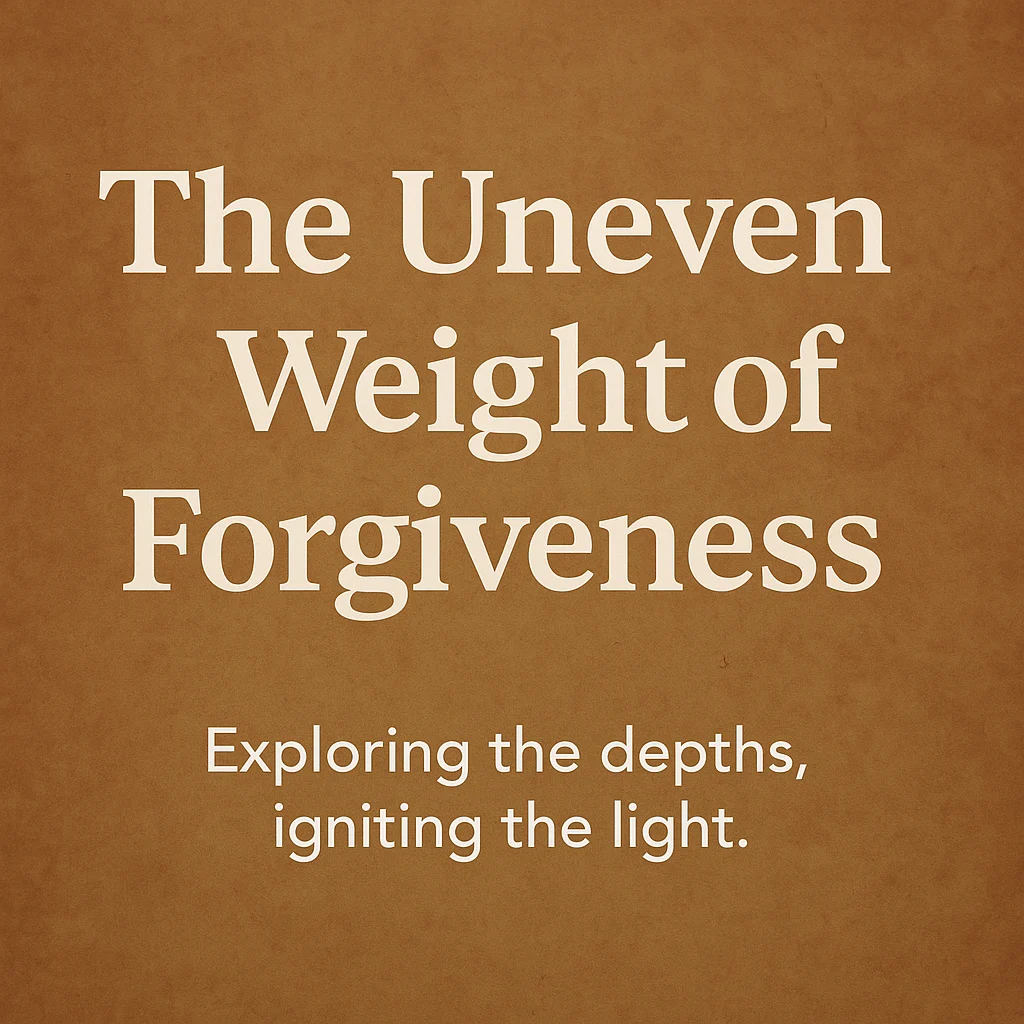Forgiveness is strange.
Some people seem to get it on tap—like no matter what they’ve done, they’re handed a clean slate and a warm hug. Others could pour their soul out trying to make things right and still end up cast out, unforgiven, forgotten, or worse—judged forever by a version of themselves that no longer exists.
You’d think forgiveness would be more natural, more present, in the relationships that matter. But it’s just as irregular and frustrating as this country’s ability to give second chances. It’s not fair, and it doesn’t make sense. Yet here we are.
We all know the phrase “No one is perfect.” But that phrase covers both the one trying to be better and the one who refuses to let go. Forgiveness isn’t about pretending the pain didn’t happen, but it should be about acknowledging that people can change. Growth is possible. Redemption is real. And yet, somehow, we’re more comfortable locking people into their worst moments and pretending they never grew past them.
I was talking with someone recently about a media figure—someone who used to be far left and has since moved toward the center. Honestly, that feels like where media should aim to be: centered, curious, open. But a lot of right-leaning folks still won’t give this person the time of day, all because of who he used to be. Never mind what he’s saying now. Never mind that he’s trying to build bridges.
It’s wild, especially when you look at figures like Trump, who once moved in left-leaning circles and held Democratic views. Now he’s the holy see of the right. Forgiven, accepted, praised. So what’s the difference?
Forgiveness, apparently, is political. Personal. Inconsistent.
Corrie Ten Boom once wrote about her sister’s effortless forgiveness, and how much she struggled with it herself. Her honesty always stuck with me. Some people really are gifted to forgive in a way that feels supernatural. The rest of us? We’re mustard seed types. We try. We wrestle. We fail. And sometimes, we hold on longer than we should.
But maybe that’s the deeper lesson here—recognizing the unevenness doesn’t mean giving up. It means being honest about it. Forgiveness isn’t free, and it’s not always deserved. But if we want any chance at peace—inside ourselves or with each other—we have to stop pretending that people can’t change.
We all want grace. We should be quicker to give it.
Discover more from Inside the mind of Wade
Subscribe to get the latest posts sent to your email.
